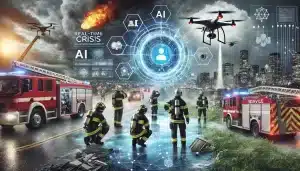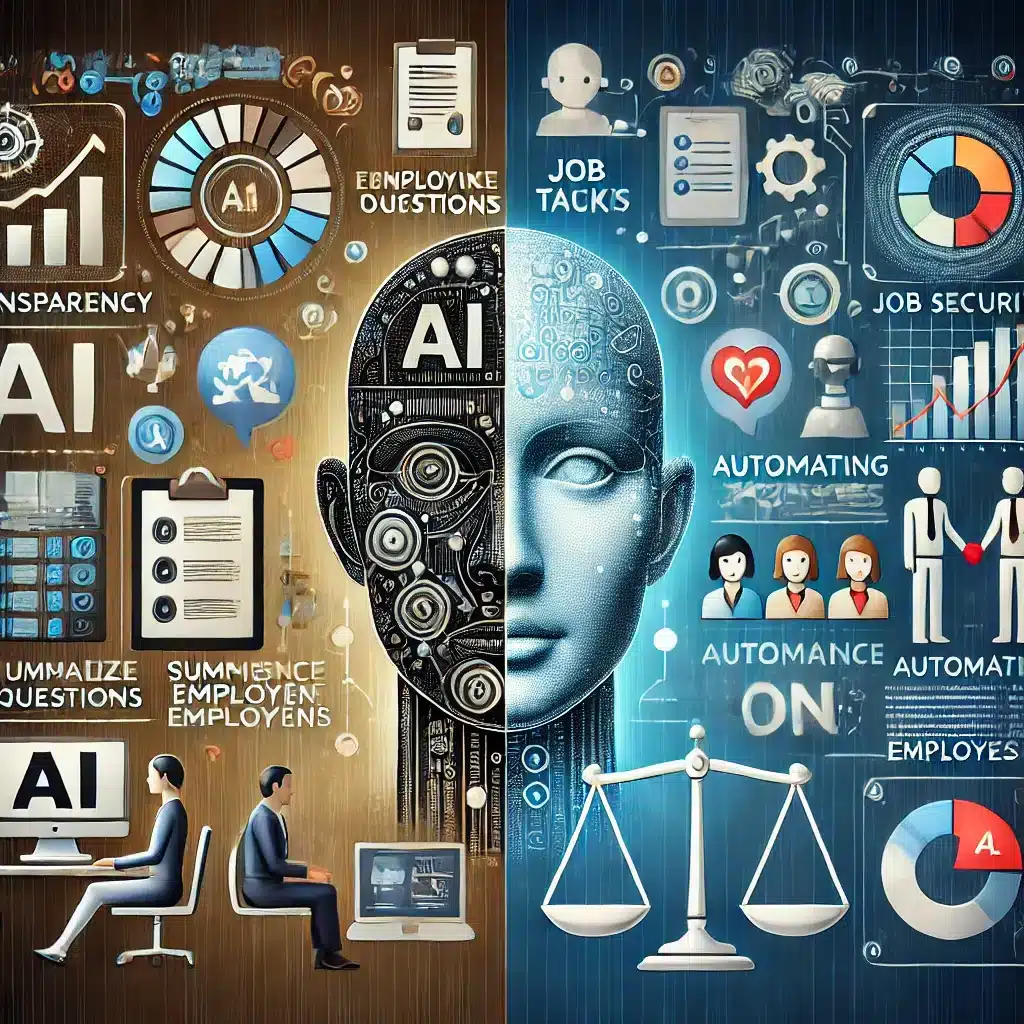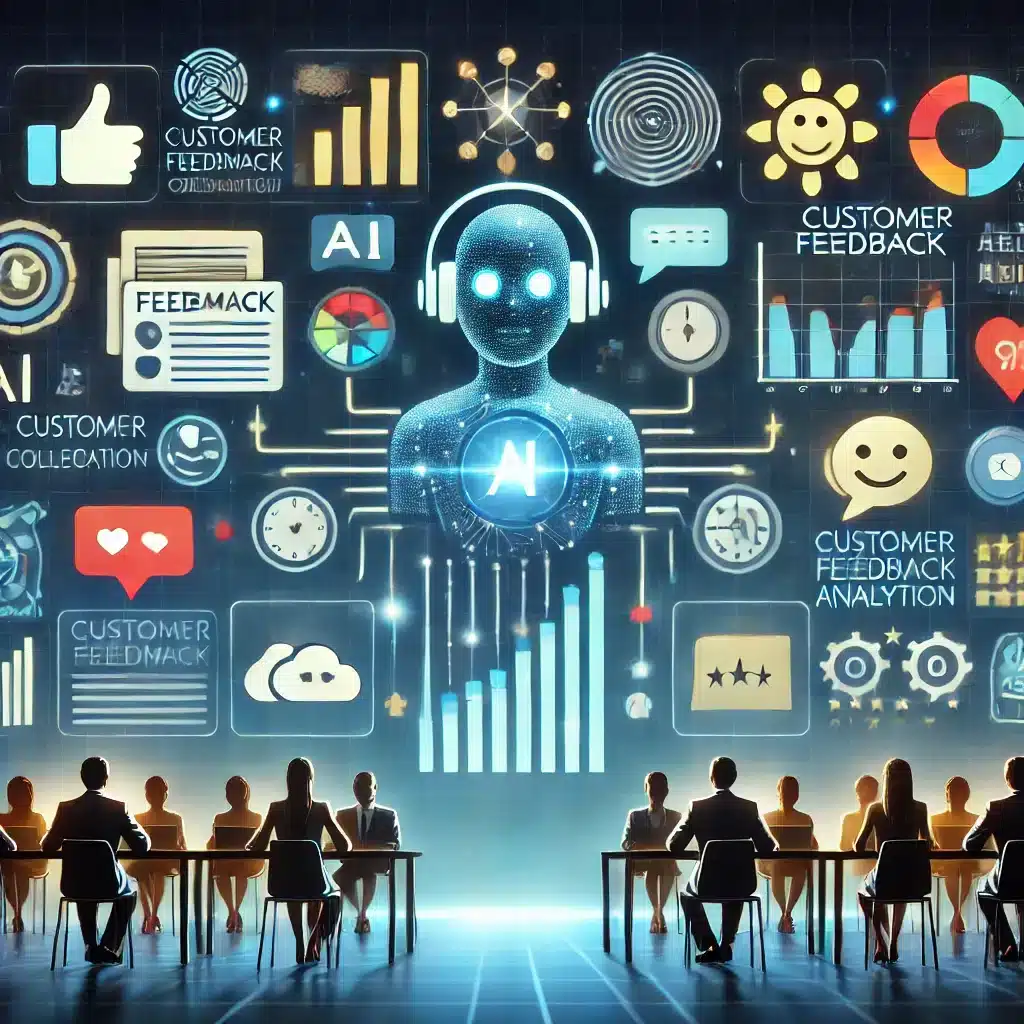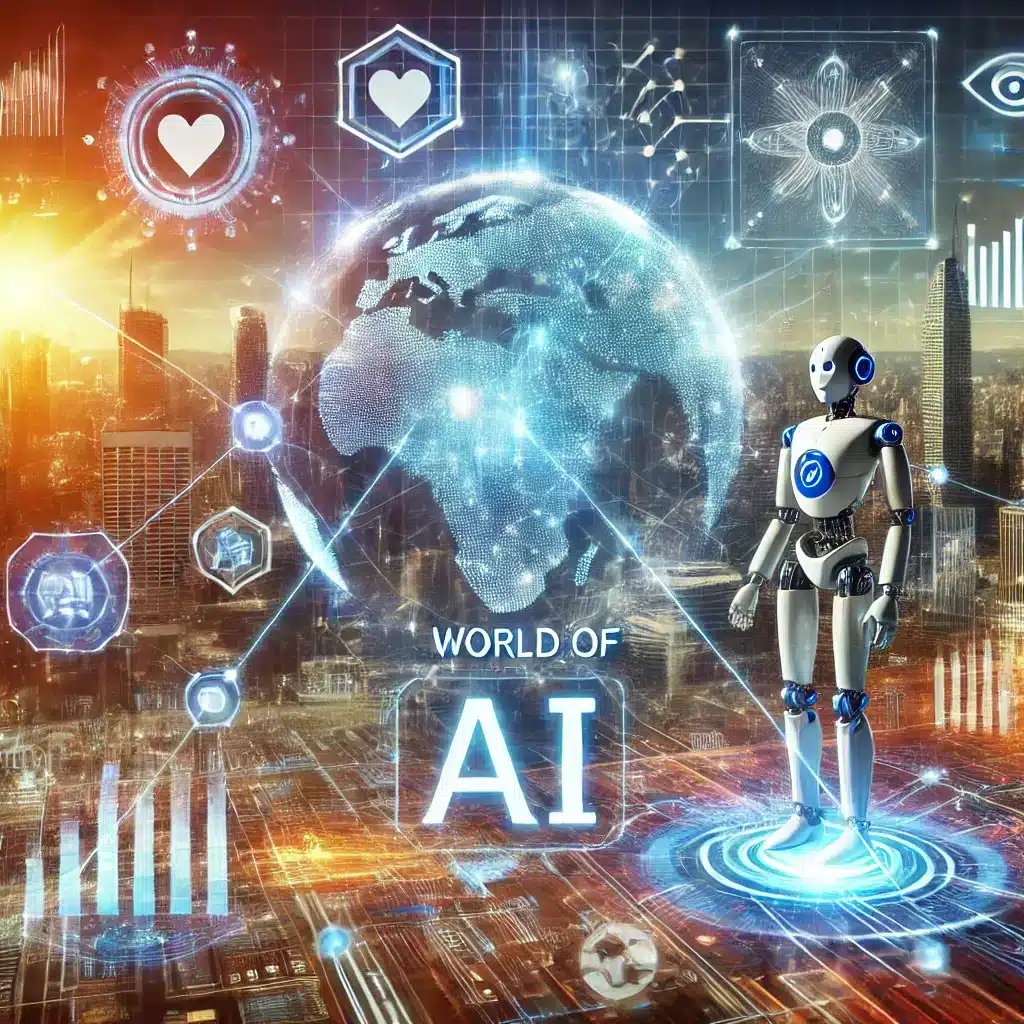The integration of artificial intelligence into crisis management changes the face of response approaches by organizations in the management of emergencies. In the service industry, the capability of leveraging AI technologies has evolved the traditional response strategies in strengthening preparedness and enhancing effectiveness while responding to emergencies. This article explores the role that AI plays in crisis management applications, its benefits, and possible future developments.
What is the Role of AI in Crisis Management?
Understanding AI and Its Applications in Crisis
Artificial intelligence is that which simulates humans’ intelligible processes using machines, particularly a computer system. In the context of crisis management, AI can be regarded as a strong device that helps in analyzing data, calculating probabilities, and optimizing responses during emergencies. The applications of AI in crisis management range from real-time analysis of data to automated decision-making processes. Organizations can improve the ability to respond to emergencies effectively by integrating AI systems into the emergency management frameworks.
How AI Enhances Emergency Response
AI improves the response to an emergency by delivering actionable insights using data-driven analytics. AI tools can analyze large amounts of data in real-time, real-time crisis services to understand the evolving nature of a crisis. Such as when disaster strikes, AI algorithms may be able to analyze social media and weather forecast information along with satellite images to deliver critical updates that also help improve response times. AI is powerful because it can identify possible trends and patterns that inform proactive crisis management strategies, which helps organizations prepare for emergencies and respond appropriately.
Examples of AI in Action During Crises
Real-world examples of AI in action during crises illustrate its transformative power. During the COVID-19 pandemic, AI technologies were put into use to track the virus spread, manage healthcare resources, and predict future outbreaks. Similarly, AI models are used in disaster management to model hurricane effects so that emergency management agencies will prepare adequately. Such examples demonstrate how the use of AI could strongly improve crisis response and recovery activities, ultimately saving lives and resources.
How Can AI Improve Emergency Response Planning?
Leveraging AI for Proactive Crisis Management
Proactive crisis management is important in reducing emergency impacts. Through AI, organizations can predict potential crises ahead of time and create proper response strategies. Predictive analytics, which is a division of AI, is important here because it uses historical data to predict future crisis patterns. For instance, AI can predict which areas are most endangered during a natural disaster to allow emergency services to reallocate resources and personnel early enough before the disaster starts.
Integrating AI Tools for Effective Response Planning
Effective response planning necessitates the integration of AI tools into existing emergency management frameworks. This integration involves adopting AI technologies that can enhance situational awareness and facilitate timely decision-making. By using AI solutions, organizations can streamline communication among emergency responders, ensuring everyone is on the same page during critical moments. This cohesive approach reduces confusion and enhances coordination efforts, ultimately leading to a more effective crisis response.
Predictive Analytics: Anticipating Crisis Scenarios
Predictive analytics uses AI algorithms to empower the organization to predict crisis scenarios and develop response strategies. Using data trends and patterns, predictive analytics can help identify new risks and potential disaster situations. For example, in disaster risk management, AI will analyze environmental data to predict whether there will be a flood or wildfire, allowing agencies to take mitigation measures in advance. The integration of predictive analytics in crisis response planning ensures that organizations are not just reactive but proactive in their response to crises.

What Are the Benefits of Using AI in Disaster Risk Management?
Enhancing Preparedness and Response with AI
The benefits of using AI in disaster risk management are manifold. One of the primary advantages is the enhancement of preparedness and response capabilities. AI can provide organizations with real-time updates and analytics that improve situational awareness. This heightened awareness allows emergency services to respond more effectively and adapt to changing circumstances during a crisis. Additionally, AI can automate routine tasks, freeing up human resources to focus on critical decision-making and on-the-ground response efforts.
AI Algorithms for Mitigating Natural Disasters
AI algorithms are pivotal in mitigating the effects of natural disasters. By analyzing vast datasets related to geological, meteorological, and environmental factors, AI can predict the likelihood and potential impact of natural disasters. This information is invaluable for emergency management agencies as it allows them to develop targeted response plans. For example, during a hurricane, AI technologies can analyze wind patterns and storm trajectories, enabling officials to issue timely evacuations and allocate resources where they are needed most.
Case Studies of Successful AI Implementations
Numerous case studies epitomize the successful implementation of AI in crisis management. One of them is its use during Hurricane Harvey 2017 in Texas. AI systems assisted in predicting the storm’s path and its potential impact on urban areas, allowing emergency services to mobilize resources effectively and communicate critical information to residents. Similarly, AI technologies have been used in wildfires, where machine learning models predict fire behavior, helping firefighters strategize their response efforts. These case studies not only illustrate the effectiveness of AI in crises but also underscore the need for continued investment in AI technologies for future emergency management.
How Can Organizations Embrace AI for Crisis Management?
Steps to Integrate AI Systems into Emergency Services
Integrating AI systems into emergency services requires a strategic approach to embracing AI for crisis management. First, they should identify the areas in which AI can support the process in place and start by determining their current capabilities. They should invest in AI technologies that will meet their specific needs in emergency management, such as predictive analytics tools or data visualization software. In addition, working with AI experts allows them to create tailored solutions for the specific challenges facing emergency services.
Training Staff to Utilize AI Tools Effectively
Training staff to utilize AI tools effectively is essential for maximizing the benefits of AI in crisis management. Emergency responders must be equipped with the knowledge and skills to interpret AI-generated data and incorporate it into their decision-making processes. Regular training sessions and workshops can help staff understand the capabilities and limitations of AI technologies, fostering a culture of innovation within the organization. Emphasizing the importance of explainable AI can also ensure that responders feel confident in the AI systems they are using.
Overcoming Challenges in AI Adoption
Despite the numerous advantages of AI in crisis management, organizations may face challenges in its adoption. Issues such as resistance to change, data privacy concerns, and the need for significant investment can hinder progress. To overcome these challenges, organizations must develop a clear strategy for AI integration that includes stakeholder engagement and transparency regarding data usage. By addressing concerns early on and demonstrating the tangible benefits of AI, organizations can foster a supportive environment for embracing these transformative technologies.
What is the Future of Crisis Management with AI?
Trends in AI for Enhanced Emergency Response
The future of crisis management is poised for significant advancements through AI technologies. Emerging trends indicate a growing reliance on generative AI and machine learning to enhance emergency response capabilities. As AI models become more sophisticated, they will be able to provide more accurate predictions and insights, allowing organizations to refine their response strategies further. Additionally, the integration of AI with other technologies, such as drones and IoT devices, will enable real-time monitoring and data collection during crises, enhancing situational awareness.
The Evolution of AI in Crisis Scenarios
The evolution of AI in crisis scenarios will continue to reshape the landscape of emergency management. As organizations increasingly adopt AI systems, we can expect to see a shift towards more data-driven decision-making processes. This transformation will empower emergency services to respond more effectively to crises, reducing response times and improving overall outcomes. Moreover, as AI technologies advance, they will become more accessible, allowing smaller organizations to leverage AI solutions for crisis management.
Preparing for the Next Generation of AI in Crisis Management
Preparing for the next generation of AI in crisis management involves continuous learning and adaptation. Organizations must remain vigilant in monitoring technological advancements and emerging best practices in AI. By fostering a culture of innovation and collaboration, emergency services can ensure that they are prepared to harness the full potential of AI in addressing complex crisis scenarios. Embracing AI is not merely a trend; it is a necessary evolution in the pursuit of effective crisis management.



